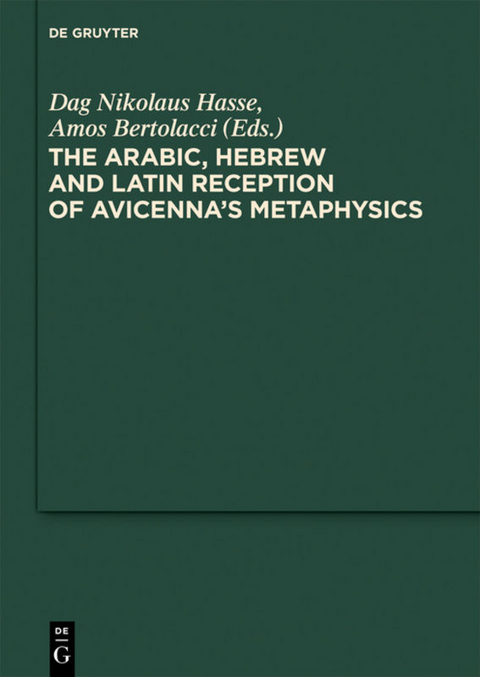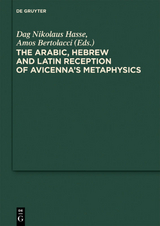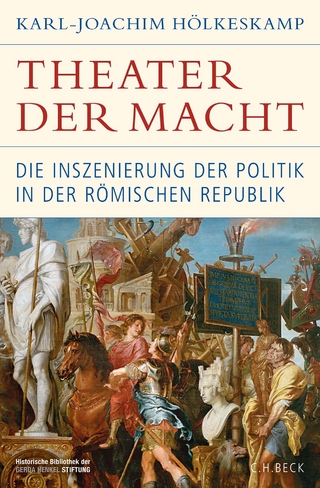The Arabic, Hebrew and Latin Reception of Avicenna's Metaphysics
Seiten
2011
De Gruyter (Verlag)
978-3-11-021575-5 (ISBN)
De Gruyter (Verlag)
978-3-11-021575-5 (ISBN)
Die Reihe widmet sich grundlegenden Texten der Wissenschaft und Philosophie der Antike und der islamischen Welt, die arabisch überliefert sind. Durch Bereitstellung kritischer Textausgaben und monographischer Untersuchungen werden der Forschung diejenigen Themenbereiche zugänglich gemacht, in denen sich die Wissenschaft zwischen der Antike und der Moderne kontinuierlich dargestellt und entwickelt hat. Die Textausgaben werden von Übersetzungen begleitet und durch inhaltliche Erläuterungen und philologische Anmerkungen erschlossen.
Avicenna’s Metaphysics (in Arabic: Ilâhiyyât) is the most important and influential metaphysical treatise of classical and medieval times after Aristotle. This volume presents studies on its direct and indirect influence in Arabic, Hebrew, and Latin culture from the time of its composition in the early eleventh century until the sixteenth century. Among the philosophical topics which receive particular attention are the distinction between essence and existence, the theory of universals, the concept of God as the necessary being and the theory of emanation. It is shown how authors such as Averroes, Abraham ibn Daud, Albertus Magnus, Thomas Aquinas and John Duns Scotus react to Avicenna’s metaphysical theories. The studies also address the philological and historical circumstances of the textual tradition in three different medieval cultures. The studies are written by a distinguished international team of contributors, who convened in 2008 to discuss their research in the Villa Vigoni, Italy.
Avicenna’s Metaphysics (in Arabic: Ilâhiyyât) is the most important and influential metaphysical treatise of classical and medieval times after Aristotle. This volume presents studies on its direct and indirect influence in Arabic, Hebrew, and Latin culture from the time of its composition in the early eleventh century until the sixteenth century. Among the philosophical topics which receive particular attention are the distinction between essence and existence, the theory of universals, the concept of God as the necessary being and the theory of emanation. It is shown how authors such as Averroes, Abraham ibn Daud, Albertus Magnus, Thomas Aquinas and John Duns Scotus react to Avicenna’s metaphysical theories. The studies also address the philological and historical circumstances of the textual tradition in three different medieval cultures. The studies are written by a distinguished international team of contributors, who convened in 2008 to discuss their research in the Villa Vigoni, Italy.
Dag Nikolaus Hasse, Julius-Maximilians-Universität Würzburg, Germany; Amos Bertolacci, Scuola Normale Superiore di Pisa, Italy.
| Erscheint lt. Verlag | 23.12.2011 |
|---|---|
| Reihe/Serie | Scientia Graeco-Arabica ; 7 |
| Verlagsort | Berlin/Boston |
| Sprache | englisch |
| Maße | 170 x 240 mm |
| Gewicht | 832 g |
| Themenwelt | Geschichte ► Allgemeine Geschichte ► Altertum / Antike |
| Geisteswissenschaften ► Philosophie ► Philosophie des Mittelalters | |
| Schlagworte | Avicenna • Avicenna; Metaphysics; Literary Reception • Avicenna; Reception, literary; Tradition, literary • Hardcover, Softcover / Philosophie/Mittelalter • literary reception • Metaphysics • Metaphysik • Rezeption • Rezeption /i.d.Literartur • Rezeption /i.d.Literatur • Überlieferung /i.d.Literartur |
| ISBN-10 | 3-11-021575-6 / 3110215756 |
| ISBN-13 | 978-3-11-021575-5 / 9783110215755 |
| Zustand | Neuware |
| Haben Sie eine Frage zum Produkt? |
Mehr entdecken
aus dem Bereich
aus dem Bereich
die Inszenierung der Politik in der römischen Republik
Buch | Hardcover (2023)
C.H.Beck (Verlag)
CHF 67,20
Buch | Hardcover (2024)
Klett-Cotta (Verlag)
CHF 69,95




